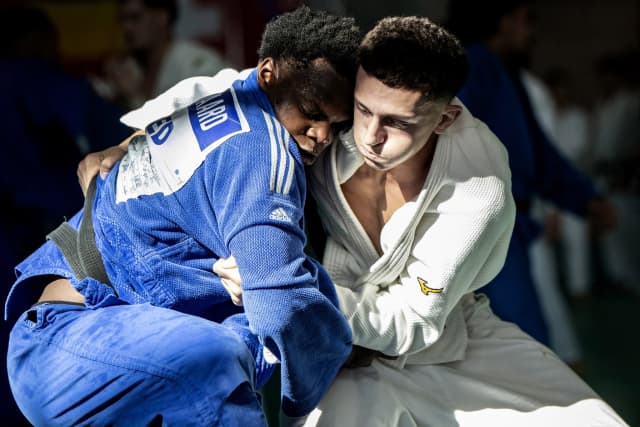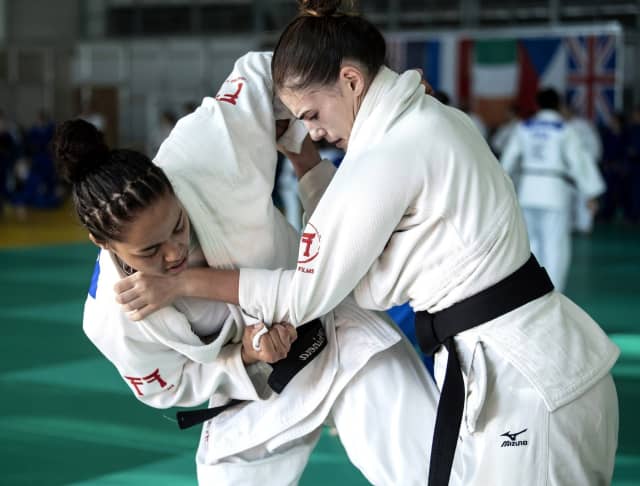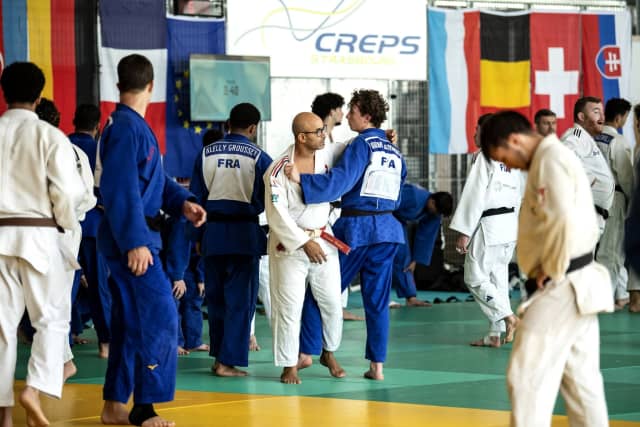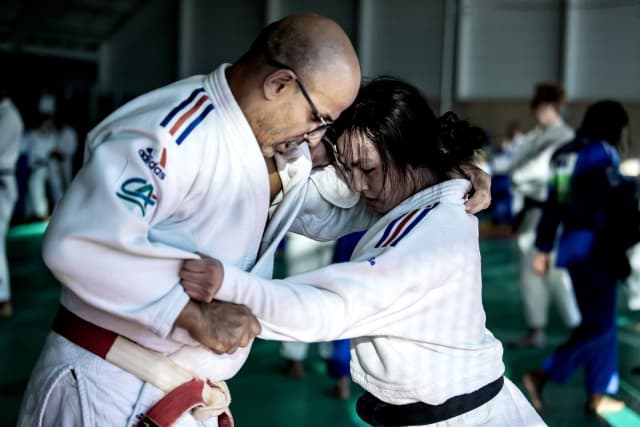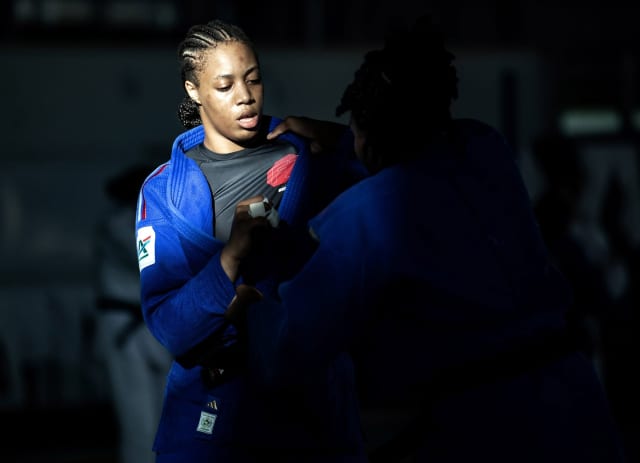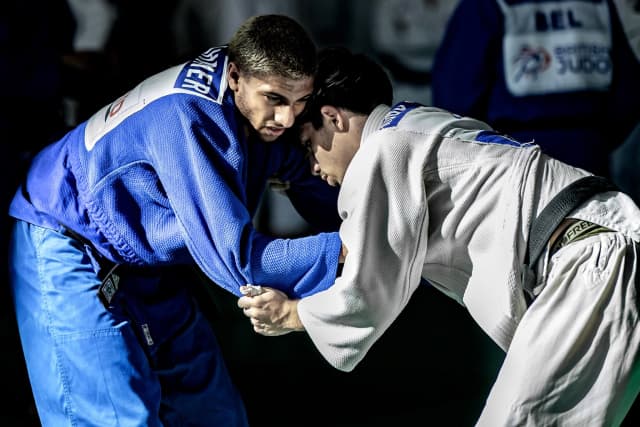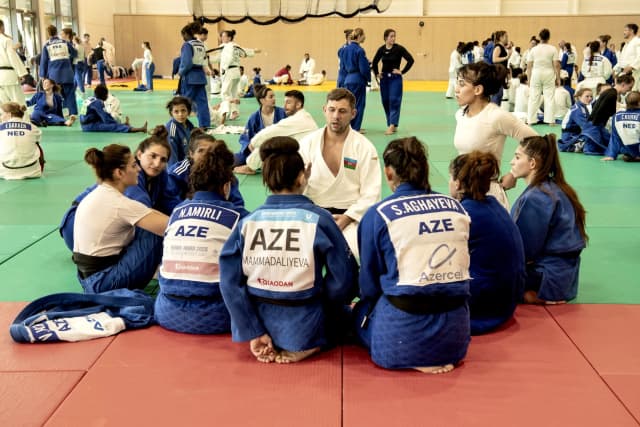A Tradition of Hospitality
The Multi-Border Camp is an institution deeply rooted in Strasbourg, the European capital and living symbol of openness between peoples. A border city by nature, home to the European Parliament, the European Court of Human Rights and the Council of Europe, Strasbourg embodies cultural exchange and co-operation beyond borders. It is in this context that the camp found its true legitimacy: to offer young judoka their first international experience in a place where the very purpose is dialogue and welcomes.
Guardians of the Spirit
Today, Alexandre Lhomme, head of the Pôle France, and Yacine Douma, coach, supported by a team of experienced staff, carry on this tradition and organise the camp with passion.
A former French champion (1994, 1995), European champion (2002), Mediterranean Games gold medallist (1999) and former coach of the French junior team, Yacine, alongside Alexandre, is one of the driving forces of the Pôle France in Strasbourg. Under their guidance, the camp continues to grow, to welcome new delegations and to remain faithful to its philosophy: giving young athletes the chance to test themselves at the highest level in a friendly yet demanding environment.
An International Dimension
This year’s edition brought together delegations from eight countries (Netherlands, Azerbaijan, USA, Switzerland, Luxembourg, Germany, Belgium and Slovakia), in addition to high-level French clubs and the eight French Pôles. With its 1,000 m² of tatami, the camp provided randori sessions perfectly suited to the sporting calendar, offering ideal preparation between two major competitions: the Junior European Championships and the Junior World Championships, scheduled for early October in Peru (5th to 8th). Each delegation also benefited from private slots to work on their own training priorities.
A Camp of Quality and Transmission
The success of the camp is built on collective organisation: meticulous logistics, the full mobilisation of the CREPS (Strasbourg’s elite sports centre) with the Grand Est staff, and hundreds of meals served each day. Beyond performance, Strasbourg becomes a place of transmission. Many French champions have passed through this tatami on their way to the very top, including Mélanie Clément, Axel Clerget, Julia Tolofua and, more recently, Joan-Benjamin Gaba, crowned senior world champion this past June.
“We wanted to create our own little Mittersill (Senior training camp in Austria),” says Yacine Douma with a smile. “Coaches and athletes leave here happy. We work, we share, we prepare together. We’re already thinking about the 2026 edition and, let’s be honest, here in Strasbourg, we’re very welcoming!”
The View of the Elders
For Bernard Messner, 8th Dan and founder of the elite training structures in Eastern France in 1974, the camp illustrates a living legacy, “It’s a great model. The format is tried and tested. There are very few camps of this scale for juniors. You experience powerful moments here. Former athletes come back as coaches, like Sébastien Girardey, former head of the Pôle, now in Luxembourg, or Amina Abdellatif, also a product of Strasbourg and now head of the Azerbaijani women’s team. There is a genuine passing of the torch and it is a joy to witness. All the work carried out by generations of judoka and coaches finds its fulfilment in a camp like this.”
In a city that symbolises European unity and dialogue between nations, the Multi-Border Training Camp in Strasbourg perfectly embodies what judo represents at its best: not only the making of champions, but the shaping of citizens open to the world. Combining rigour with conviviality, this gathering has become a landmark for young talent and a living testament to the universal vocation of judo.
Photos © Isabelle Geiger

